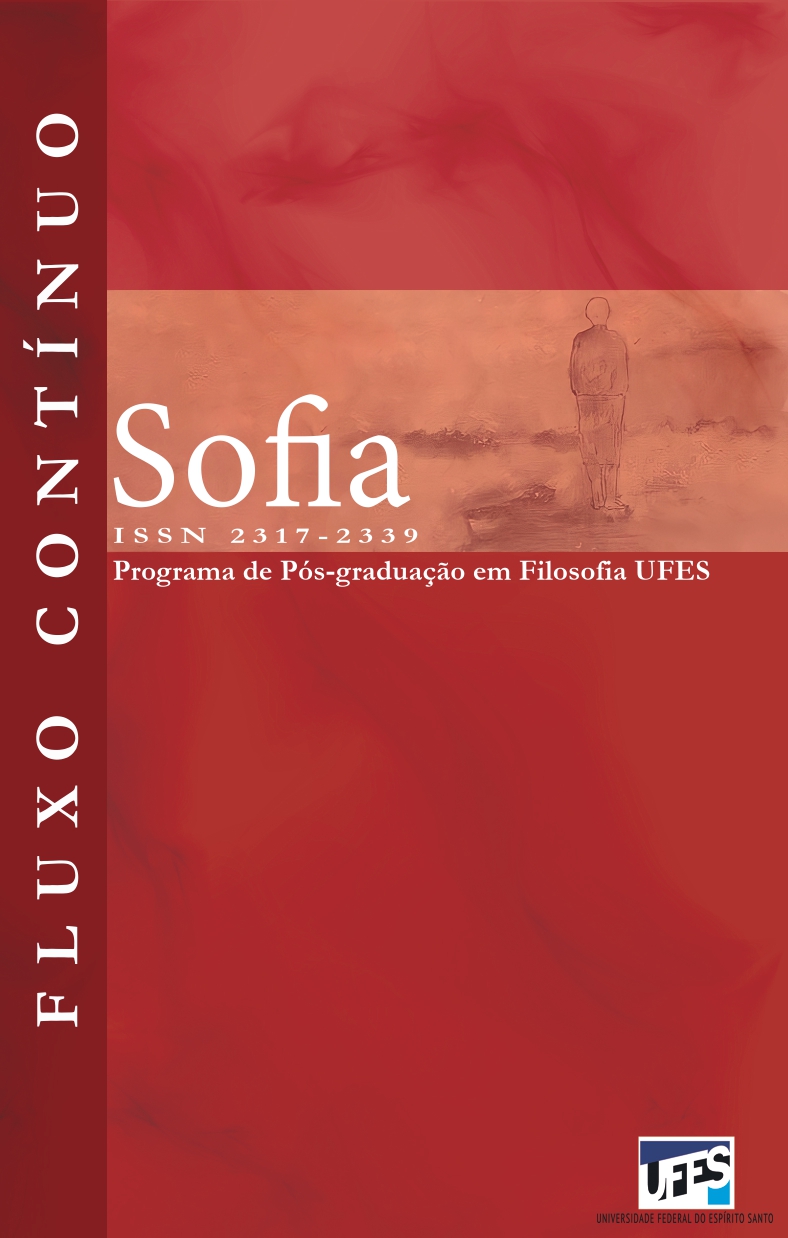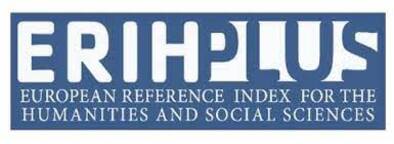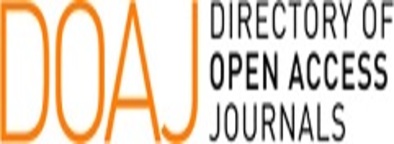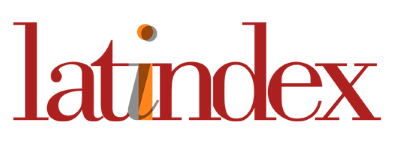The ascetic atheist and the hedonistic priest
between Malebranche and Schopenhauer
DOI:
https://doi.org/10.47456/sofia.v11i2.38835Keywords:
Malebranche, Schopenhauer, will, hedonism, asceticismAbstract
This article aims to propose an investigation into the concept of Will from Malebranche (1638-1715) and Schopenhauer (1788-1860). We start from the assumption that, keeping the due proportions, there are elements that allow us to affirm a certain similarity between the two. Respecting the particularities of each one, we are also dedicated to briefly pointing them out. To this end, we have divided this article into three parts. The first presents general aspects of the concept of Will proposed by Malebranche. The second discusses Schopenhauer's Will to Life concept. In the third, we present a discussion of the different paths they took from a common starting point: the notion of blind will. From this investigation, we support our argument about the similarities and confluences that, however, do not diminish the specificity of each author, especially regarding the results; the Christian leaning toward hedonism, while the atheist leaning toward asceticism.
Downloads
References
BADIOU, A. Malebranche: L’être 2 – figure théologique (textoétabli par Isabelle Vodoz). Paris, Librairie Arthème Fayard, 2013, p. 01-37.
CACCIOLA, M. L. Schopenhauer é um verdadeiro discípulo de Kant?. Rev. Fil. Aurora. Curitiba, v. 30, n. 49, Jan.-abr., p. 08-17, 2018.
GIACOIA JR, O. Ser e sentido: o paradoxo do sofrimento. Voluntas, vol. 7, nº 22, p. 04-26, Jan-Jun 2016.
MALEBRANCHE, N. A busca da verdade (textos escolhidos). Trad. Plínio J. Smith. 1ªed. São Paulo: Discurso editorial, 2004.
MALEBRANCHE, N. Diálogo de um filósofo cristão e de um filósofo chinês sobre a existência e a natureza de Deus. Trad. João Gama. 1ª ed. São Paulo: Edições 70, 1999.
MALEBRANCHE, N. Meditações Cristãs e Metafísicas. Trad. Adelino Cardoso. Lisboa : Colibri, 2003.
MALEBRANCHE, N. Méditations chrétiennes et métaphysiques. In : SIMON, Par M Jules (org). Œuvres de Malebranche. Paris : Charpentier, 1871.
MALEBRANCHE, N. Recherche de la Vérité. (Des inclinations ; Des Passions) In : MM. de Genoude; Lourdeux (org). Œuvres complètes. Paris: Libraire de Sapia, 1837.
MONZANI, L. R. Desejo e prazer na idade moderna. 2ªed. Curitiba: Champagnat, 2011.
PRIAROLO, M. Un Plaisir Divin : Malebranche, Lamy (et les autres). In: MUCENI, Elena ; PITASSI, Maria-Cristina. Le Malebranchesme à l’éprouve de ses amis et de ses ennemis, 1º ed. Genève: L’Institut d’histoire de la Réformation, 2015.
RIBEIRO, F. A. S.; SILVA, E. F. Crítica Nietzschiana ao Princípio Ascético Schopenhaueriano. Religare, vol. 7, n. 1, p. 17-26, Mar. 2010.
RILEY, P. The General Will Before Rousseau: The Transformation of the Divine Into the Cive. Princeton: Princeton University Press, 1986, p. 99-137
SCHOPENHAUER, A. O Mundo Como Vontade e Representação (Primeiro Tomo). Trad. Jair Barboza. São Paulo: Editora UNESP, 2005, p. 480-503.
SCHOPENHAUER, A. O Mundo como Vontade e Representação (Tomo II, complementos – v. I). Trad. Eduardo Ribeiro da Fonseca. Curitiba: Editora UFPR, 2014a, p. 219-223.
SCHOPENHAUER, A. O Mundo como Vontade e Representação (Tomo II, complementos – v. II). Trad. Eduardo Ribeiro da Fonseca. Curitiba: Editora UFPR, 2014b, p. 13-17.
WALSH, J.; LENNON, T. Malebranche, the Quietists, and freedom. British Journal for the History of Philosophy, vol. 20, n. 1, p. 69-108, 2012
Published
How to Cite
Issue
Section
License
Copyright (c) 2022 Jeferson da Costa Vaz, Francisco Verardi Bocca

This work is licensed under a Creative Commons Attribution 4.0 International License.
Dada a política de acesso público da revista, o uso dos textos publicados é gratuito, com a obrigação de reconhecer a autoria original e a primeira publicação nesta revista. Os autores das contribuições publicadas são inteiramente e exclusivamente responsáveis por seus conteúdos.
I Os autores autorizam a publicação do artigo nesta revista.
II Os autores garantem que a contribuição é original e assumem total responsabilidade pelo seu conteúdo em caso de impugnação por terceiros.
III Os autores garantem que a contribuição não está sob avaliação em outra revista.
IV Os autores mantêm os direitos autorais e concedem à revista o direito de primeira publicação, sendo o trabalho licenciado sob uma Licença Creative Commons Atribuição-BY.
V Os autores são autorizados e incentivados a divulgar e distribuir seu trabalho on-line após a publicação na revista.
VI Os autores dos trabalhos aprovados autorizam a revista a distribuir seu conteúdo, após a publicação, para reprodução em índices de conteúdo, bibliotecas virtuais e similares.
VII Os editores reservam o direito de fazer ajustes no texto e adequar o artigo às normas editoriais da revista.


















